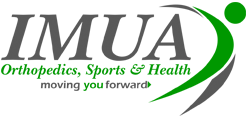Inside and outside of my practice often get asked, “what’s the best diet out there?” While I do not believe there is a such thing as a perfect diet for everyone, I do think there are some basic guidelines that can get most people on the right track.
Our outward appearance is unique, as is our internal chemistry and function. Finding the right mix of nutrients takes some experimentation and time. From what I have learned in my intense, evidence-based study of nutrition and from what I have observed in my clinical practice, it seems that a “Paleo-Mediterranean” style of eating seems to be a good starting place for most people. The basic guidelines I have listed below are general and may not take into account individual differences in health, gut or hormonal balance.
Beth’s Paleo-Mediterranean Diet Guidelines:
- Plant-based diet with half of the plate veggies at most, if not all meals
- Green vegetables eaten daily (1 cup/day)
- Organically and sustainably raised meats and poultry in smaller portions (no more than 4-6 oz/meal)
- Lean cuts of meat if organic is not available (no more than 4-6 oz/meal), Richer cuts of meat are okay when not grain-fed or conventionally raised
- Fish and/or seafood 2-3 times/week
- Smaller portions of whole grains (if tolerated) that are mostly, if not all gluten-free (1/2-3/4 cup per meal)
- Smaller portions of legumes (1/2 cup/meal) (if tolerated)
- Fruit and nuts as snacks
- 1-2 servings of fats incorporated at all meals for satiety to include avocado, nuts/seeds, coconut oil, extra-virgin olive oil, and high quality grass-fed butter or ghee
- Limited dairy, better if fermented and/or raw (if tolerated)
- Addition of fermented foods like sauerkraut, kimchee and beet kvass consumed daily
- Limited added sugar from raw honey, pure maple syrup and stevia (NO artificial sweeteners like Splenda or NutraSweet or processed white sugar)
- Daily consumption of green tea, coffee (if tolerated) and water
- Use of more traditional moist cooking methods (stewing, braising, boiling, baking) and limited high temperature cooking (grilling, frying)
As mentioned above, these guidelines are not definitive! You need to find a balance that works for you and your lifestyle.
Come see me at IMUA if you are interested in learning more!
In Health and Vitality,
~Beth








